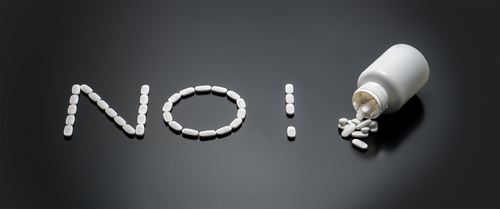Some top-selling diabetes drugs in India not safe: Experts
IANS Mar 07, 2018
The authors, in their current paper, are urging India's regulatory drug agency, the Central Drugs Standard Control Organisation, to make public its evidence for approving the FDCs now in use, to provide "confidence in their efficacy and safety".

Some top-selling diabetes drugs in India may not be safe for patients, says a team of international experts, according to whom, the country's drug regulatory system allows use of a treatment that has not been found effective or safe.
For their study, published in the British Medical Journal, the researchers used World Health Organisation (WHO) guidelines for approving metformin fixed-dose combinations (FDC) to assess the efficacy and safety of those top-selling diabetes drugs in India."This work is relevant to an active case in the courts in India. We are in the six-month review window ordered by India's Supreme Court right now," lead author Valerie Evans, a biostatistician at University of Massachusetts Amherst School of Public Health and Health Sciences in the US, said in a university statement on Tuesday.
The authors pointed out that in March 2016, the Indian government banned more than 300 unapproved FDCs that lacked clinical support or that were found to be potentially harmful. The ban included different doses of three of the five top-selling metformin FDCs. But the ban was overturned by the Delhi High Court in December 2016. The government later appealed this to the Supreme Court and in December 2017 the country's apex court gave the Drugs Technical Advisory Board six months to consider the banned drugs.
"Our examination exposes serious deficiencies in the evidence base for metformin FDCs for Type-2 diabetes and raises questions about the role of multinational corporations in manufacturing these for sale and use," the researchers said in their current paper. They are urging India's regulatory drug agency, the Central Drugs Standard Control Organisation, to make public its evidence for approving the FDCs now in use, to provide "confidence in their efficacy and safety".Further, if that evidence does not extend beyond the clinical trials they reviewed, "those FDCs should be banned immediately", the researchers said. "The Government's 2016 ban on FDCs should be reinstated and a review of FDCs mandated by the Indian Parliament," said senior author Allyson Pollock from Newcastle University in Britain.
FDCs combine two or more drugs in a fixed ratio into a single dose form, usually a tablet or capsule, which is appropriate for some conditions.FDCs can make medications more convenient and less costly for patients. However, no international treatment guidelines recommend use of FDCs for Type-2 diabetes, because individual monitoring and adjustment of blood sugar is important in the disease, the authors said.Multinational corporations manufacture all five of India's 500 top-selling FDCs for diabetes, they added."We want the medicines that doctors prescribe for their patients to be safe and effective and for that to be supported by sound evidence and by properly conducted, transparent clinical trials," said Evans, who did the research while at the University of Edinburgh in Britain.
-
Exclusive Write-ups & Webinars by KOLs
-
Daily Quiz by specialty
-
Paid Market Research Surveys
-
Case discussions, News & Journals' summaries